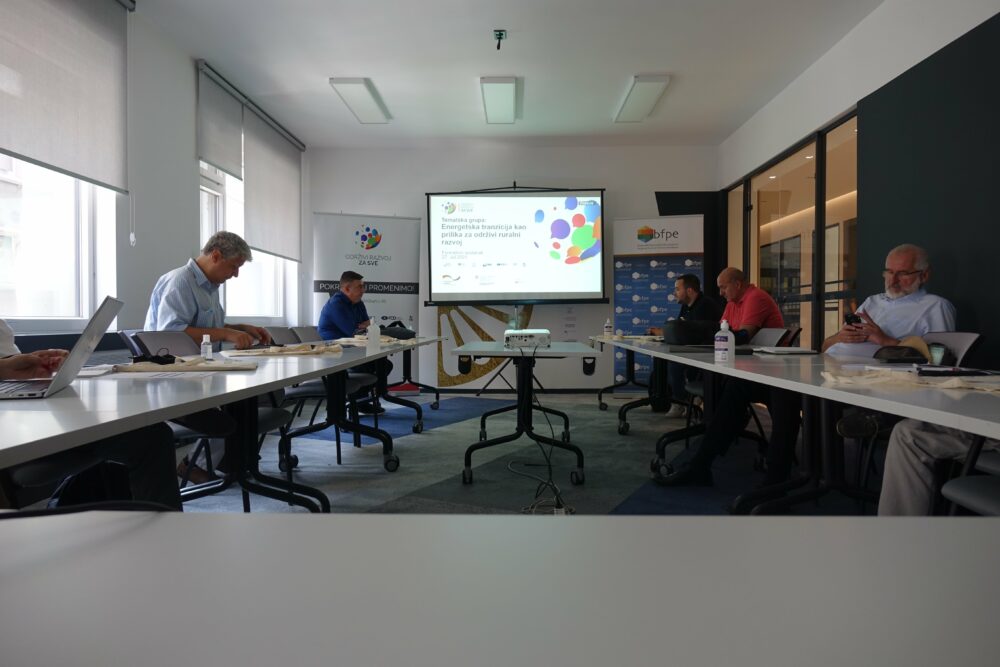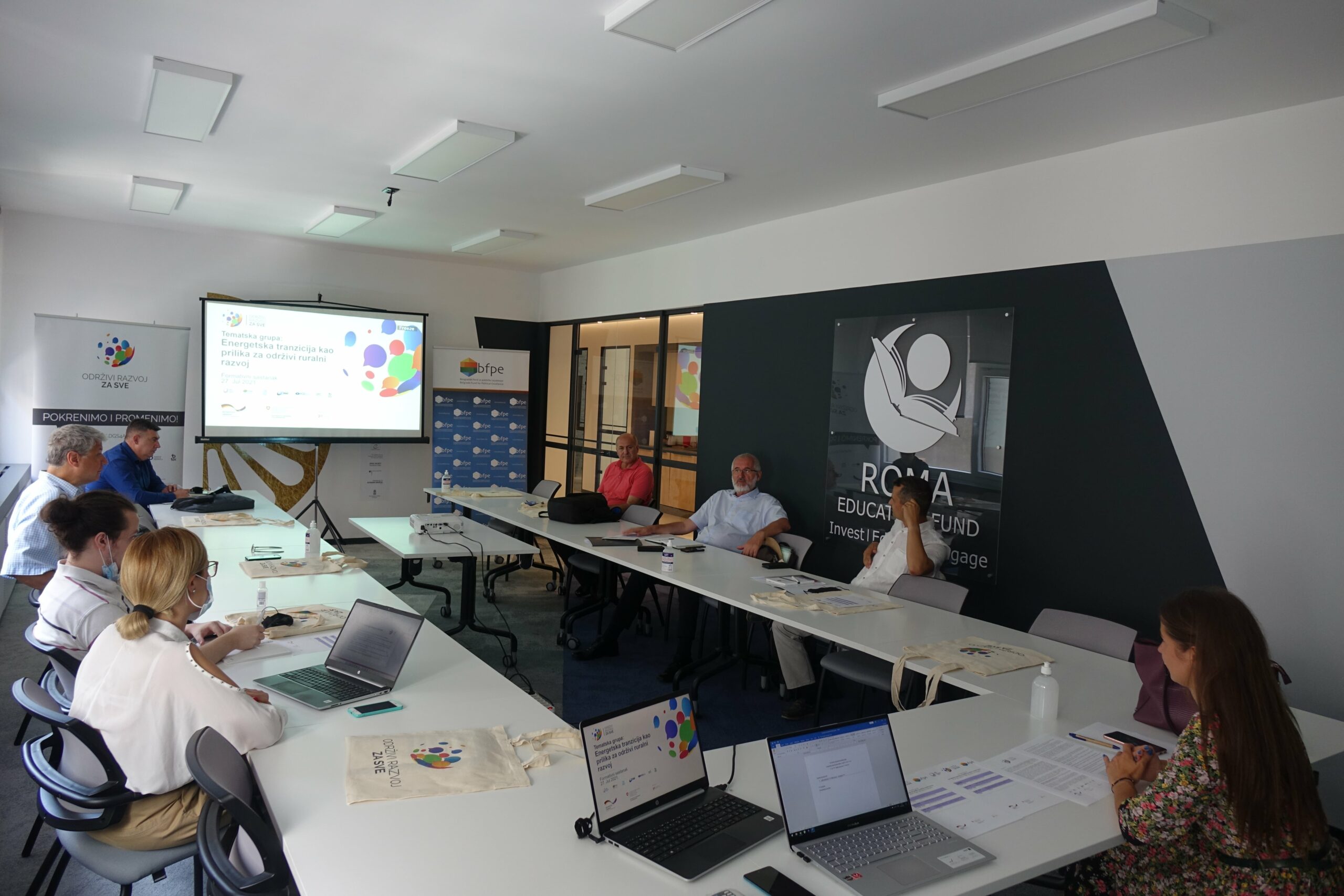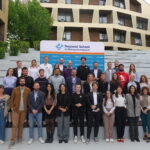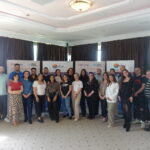The thematic group Energy Transition as an Opportunity for Sustainable Rural Development held its formative meeting on Tuesday (July 27th). This marks the beginning of the work of a thematic group that will be a forum for debate on priorities and opportunities for energy transition in rural areas. And which will serve as a platform for the exchange of opinions, experiences and policy proposals among the stakeholders in this field.
The thematic group will aim to shed a light on the ambiguous relationship between renewable energy and rural development in the context of the current trajectory of energy transition in Serbia. And while the energy transition is increasingly recognized as a promising opportunity for the economic development of rural areas, there are significant challenges affecting municipalities in rural areas in this regard.

The present members of the thematic group agreed that insufficient human capacities, lack of coordination between municipalities, very low energy efficiency of facilities in rural areas are some of the most significant challenges that rural areas face in terms of energy transition. While the use of waste and agricultural biomass for energy purposes, the formation of energy cooperatives, as well as production from solar or wind energy in areas suitable for this are seen as significant potentials for a fair energy transition in rural areas.
This was the first of three meetings to be held by the thematic group, which will result in two policy recommendations papers that will provide clear proposals for solving certain problems in the field of energy transition of rural regions.
The organization of the round tables was funded by the governments of Switzerland and Germany within the platform “Sustainable Development Goals for All” implemented by Deutsche Gesellschaft für Internationale Zusammenarbeit (GIZ) GmbH, as part of the Public Finance Reform – Agenda 2030 project. Partners on the project are Belgrade Fund for Political Excellence, Belgrade Open School, Center for Advanced Economic Studies, Ana and Vlade Divac Foundation, Foundation Center for Democracy and Timok Youth Center.













